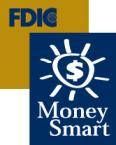Tips on How to Find the Right CD for You
A bank certificate of deposit typically offers a higher rate of interest than a regular savings account in exchange for you keeping the money on deposit for, say, three months to five years or more.
Whether you are considering buying a simple, fixed-rate CD or one with more complex features, either directly from a bank or indirectly from a non-bank broker, here are tips for selecting the right CD for your needs.
Make sure you are purchasing a “deposit” product issued by a federally insured institution. Not all companies with bank-sounding names are actually banks that are insured by the FDIC. To verify that an institution is FDIC-insured, click on “Find Your Bank” at www.fdic.gov or contact the FDIC’s toll-free call center at (877) 275-3342.
If you purchase a CD from a third-party broker instead of directly from the bank, you will have to rely on the broker to make your deposit and acquire the CD. “Remember that the FDIC does not license or register deposit brokers and that an unscrupulous broker could mislead or defraud its customers,” explained Martin Becker, an FDIC senior deposit insurance specialist. “If the broker fails to place your funds into a CD at an FDIC-insured bank, your money will not be insured by the FDIC. Also, be sure to review the account agreement and other supporting documentation to confirm you are in fact purchasing a CD and not a financial product that is not insured by the FDIC.”
If you purchase a CD issued by an institution where you already have deposits, make sure that all of your funds are insured. “If the new CD combined with your existing deposits at the same bank would put your total bank deposits above the $250,000 FDIC basic insurance limit, you may need to take steps to make sure all of your deposits are fully protected,” explained Jan Templeman, an FDIC consumer affairs specialist.
If you have more than $250,000 on deposit at a FDIC-insured bank you can call the FDIC toll-free at (877) 275-3342 and speak to a deposit insurance specialist who will help to make sure you are fully insured. You can also use the FDIC’s online deposit insurance estimator “EDIE” at www.fdic.gov to verify your deposit insurance coverage.
Know what the contract says about your interest payments. Some banks are offering CDs with variable interest rates based on a pre-set schedule or tied to the performance of a basket of market indexes (such as the S&P 500, bonds or foreign currency). Many market-linked CDs accrue interest only when the CD matures, not every day or every month. To learn more about the potential benefits and risks of market-linked CDs (also known as indexed or structured CDs), see Market-Linked CDs: Don’t Let the Possibility of Higher Returns Cloud Your View of the Potential Risks.
Be suspicious if the advertised CD rate is far above the competition. The product may be offered by a company that is not federally insured, in which case any money invested could be lost if the firm goes bankrupt. There is also a common marketing ploy to lure customers with a temporary high CD rate with the goal of eventually selling them something else. “A very high interest rate advertised on an FDIC-insured bank CD could be a scheme created when a finance company or an insurance agent adds a small bonus to the CD to lure people in the door and, sooner or later, tries to sell the customers uninsured, long-term investments that may not be in their best interest,” advised Richard M. Schwartz, an FDIC attorney.
Find out if the CD would automatically renew at the maturity date if you don’t withdraw the money. If that is the case, check to see if the automatic renewal will be at the “old” interest rate or the current rate at the time of the renewal. If market rates have risen, it may not be to your benefit to renew at the old rate.
Determine whether you can terminate the CD early. The terms of most fixed-rate CDs will allow the depositor to pay a fee to redeem the deposit prior to maturity. However, most market-linked CDs do not allow for an early redemption. Also be aware that market-linked and other long-term, high-yield CDs typically have “call” features that give the bank the right to close the account early. A callable, fixed-rate CD could undermine your ability to lock in an attractive, long-term interest rate. Why? If interest rates fall, the issuing bank may decide to call the CD and give you back your money (plus accrued interest) because it can issue new CDs at the lower interest rates.


